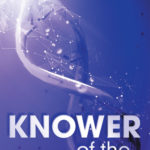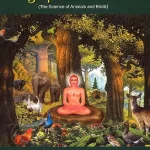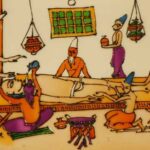‘Being and Becoming‘ is the title of a contemporary fiction novel by Indian-American author Phalgun Prativadi. Set in the background of the US healthcare industry, the story is about a gifted physician-researcher, Dr. Arya Krish, who is drawn into a battle with a powerful and manipulative giant medical business group, Alpha Corp. You can read the synopsis and excerpts on the book website. The storyline connects two cities, Washington DC, where the main protagonist resides and where his office at Beacon Medical Institute is located, and Bengaluru, which is an HQ for managing his philanthropic projects in India. The plot unfolds into an escalating chess-like tussle between the shadowy Alpha Corp and Krish, culminating in a fascinating end-game in the final chapter.
The author, with his first-hand knowledge of the US healthcare industry, is able to expertly communicate key aspects of the ongoing clash in the US today between medical care professionals and their patients versus the combined influence of big-hospitals, big-pharma, big-insurance, and big-lobbying (it is Washington DC after all). The author notes that “Ultimately, the insurance company got to decide what happens to the patient. It was an insidious takeover, corrupting the politicians in their favor, and desensitizing the public to their blatant power grab. And, the norm was being declined a certain treatment, facility, or medicine because the insurance company decided it wasn’t worth paying for, while at the same time influencing how much the damn thing costs!“.
Another takeaway is the insightful observation about the approach followed by medical residents (physicians-in-training): “these physicians in training all wound up conforming to a single arbitrary but consistent and effective mode of operation. Lately, it seemed to him that they all looked and sounded the same, that none of their individuality came through in their behavior or interactions.” Some may contrast this efficient monoculture backed by first rate infrastructure in the US, with the excellent clinical ability, patient-history taking and examination skills, and diverse methods adopted by Indian doctors to overcome the limitations of equipment shortage.
It is interesting to note the use of a few Sanskrit non-translatables such as Shakti. Introducing a few more would have been handy, but the decision is understandable given the constraints and focus of this genre.
Being and Becoming
As Dr. Krish plots his fightback against Alpha Corp, a manthana emerges within Dr. Arya Krish as he introspects and attempts to reconcile his ‘being’ with what he was ‘becoming’ in this process. Dr. Prativadi has addressed this inner conflict from a mostly Indic perspective. This ICP post introduces us to the literary theory and dramatics within classical Indic Literature. This exploration of inner-space within the novel is refreshing and different from the usual fare, where such discussions tend to get intellectualized using western philosophy and simplistic two-valued logic. The West has studied the being-becoming conundrum by building upon the ideas developed in Ancient Greece by thinkers like Plato, Heraclitus, Parmenides, and others. Such works resolve the issue in the favor of one position or the other, or propose an uneasy and synthetic unity [2] between such opposing poles. In any case, the anxiety latent in this conflict never really goes away.
Such dualities exist all around us. For example, in India, we often hear the phrase “Nation comes first whereas Religion is personal and comes next, and practiced inside the home“. This is taken as a positive way of ‘managing’ diversity, whereas in reality, it admits to a potentially irreconcilable conflict between organized religion and one’s duty to their nation, and that one can at best achieve a compromise without ever resolving the resultant anxiety. Similarly, it is not uncommon for western STEM professionals to be ‘scientists’ inside the lab, while embracing religious or atheistic dogma outside it, again manufacturing a tense unity between two separately independent worlds. Such a synthesized unity is prone to fissure. On the other hand, this is a non-issue for the diverse dharma traditions of India [2]. Following a dharmic path naturally and always serves the nation as well as science in the most genuine manner.
The combination of Matter and Spirit is not an accomplished union but it is only a mutual super-imposition. #BhagavadGita #LivingGita #Kurukshetra pic.twitter.com/rXChLuh1mK
— Swami Chinmayananda (@Chinmayananda) November 23, 2017
In India, such pairs of opposites have received the attention of Rishis since the earliest of times and their resolution results in a harmony that rids us of such anxiety. In his book ‘Being Different’ [2], Rajiv Malhotra remarks:
“in dharma traditions, integral unity can be discovered and experienced through spiritual practices such as yoga. Since both ‘exterior’ and ‘interior’, body and mind, spirit and matter, individual and collective, are mere manifestations or aspects of an integral whole, it becomes natural to start the quest for ultimate truth using what is at hand, namely the embodied self. Sri Aurobindo’s interpretation of the Isha Upanishad explains nine pairs of opposites and how they are resolved within the integral unity”.
Thus, the Indic solution to this challenge radically differs from the western and embraces an integral rather than a synthetic unity. For example, Sri Aurobindo writes on ‘Being and Becoming’ [3]:
“Everything depends on what we see, how we look at existence in our soul’s view of things Being and Becoming, One and Many are both true and are both the same thing: Being is one, Becomings are many; but this simply means that all Becomings are one Being who places Himself variously in the phenomenal movement of His consciousness. We have to see the One Being, but we have not to cease to see the many Becomings, for they exist and are included in Brahman’s view of Himself. Only, we must see with knowledge and not with ignorance…”
In the Infinite, the ever-changing finite world of multiplicity is but a projection, and the endless experiences of the painful are all caused by our own misapprehensions of the Reality. #BhagavadGita #LivingGita #Kurukshetra pic.twitter.com/MwWI5SIokO
— Swami Chinmayananda (@Chinmayananda) November 24, 2017
On the whole, I enjoyed reading the book, which is the author’s first. The author has skillfully narrated an interesting story without making it a long read, and the plot moves forward briskly. To learn more about the novel and purchase it, please visit the book website. It is also available on Amazon and other retailers.
It is an exciting time to be a reader. There is a new generation of Indian writers who are grounded in India’s deep culture, which allows them to explore the world using an Indic lens and freely express themselves based on their own, authentic Indian experience.
About the Author
Phalgun Prativadi, M. D., is a practicing physician in the United States. He grew up in Maryland and graduated from Penn State, and is currently an infectious diseases physician in Pittsburgh, Pennsylvania. He has previously authored articles for websites such as Hinduism Today. ‘Being and Becoming’ is his first full-length novel, and he hopes to continue the story in the future.
References:
- Phalgun Prativadi. Being and Becoming. Dog Ear Publishing. Kindle Edition. 2016.
- Rajiv Malhotra. Being Different: An Indian Challenge to Western Universalism. Harper Collins. 2011.
- The Collected Works of Sri, Aurobindo: Isha Upanishad, Vol. 17. 2003.




Splendid review, Shivoham. Looks like an interesting read on the realities of modern Medicine from an Indic perspective. So used to seeing rootless non-Indian residents (NIRs) in the desh; nice to see an NRI/PIO who is rooted in culture. My compliments to the author for the brave effort at presenting the realities of the medical industry in novelised form. Glad to see an upcoming generation of writers with both subject matter expertise and pride in their Dharmic heritage.
Thanking you again for the thoughtful review, and the effort and contribution as a whole by indicportal in giving the novel exposure, particularly to those of Indian origin who may recognize and appreciate the blend of vedic influences in the themes of the book.
thanks for kind words. All credit must go to the author for penning such a fine novel and making its readers think and put themselves in the shoes of Dr. Arya Krish. As nripathi garu mentioned, I hope many budding authors from India and among the people of Indian origin all over the world are inspired by such wonderful works and follow in these footsteps.